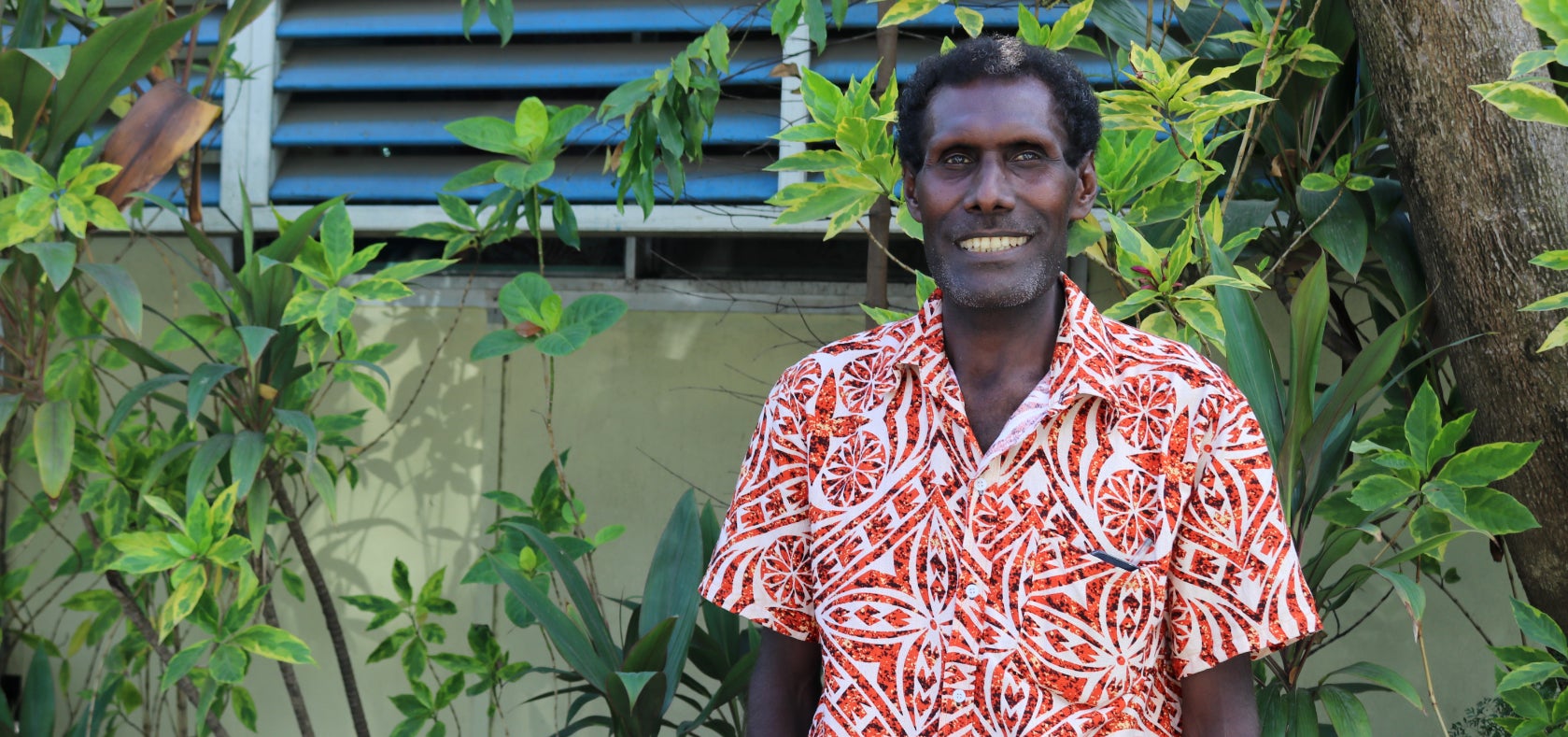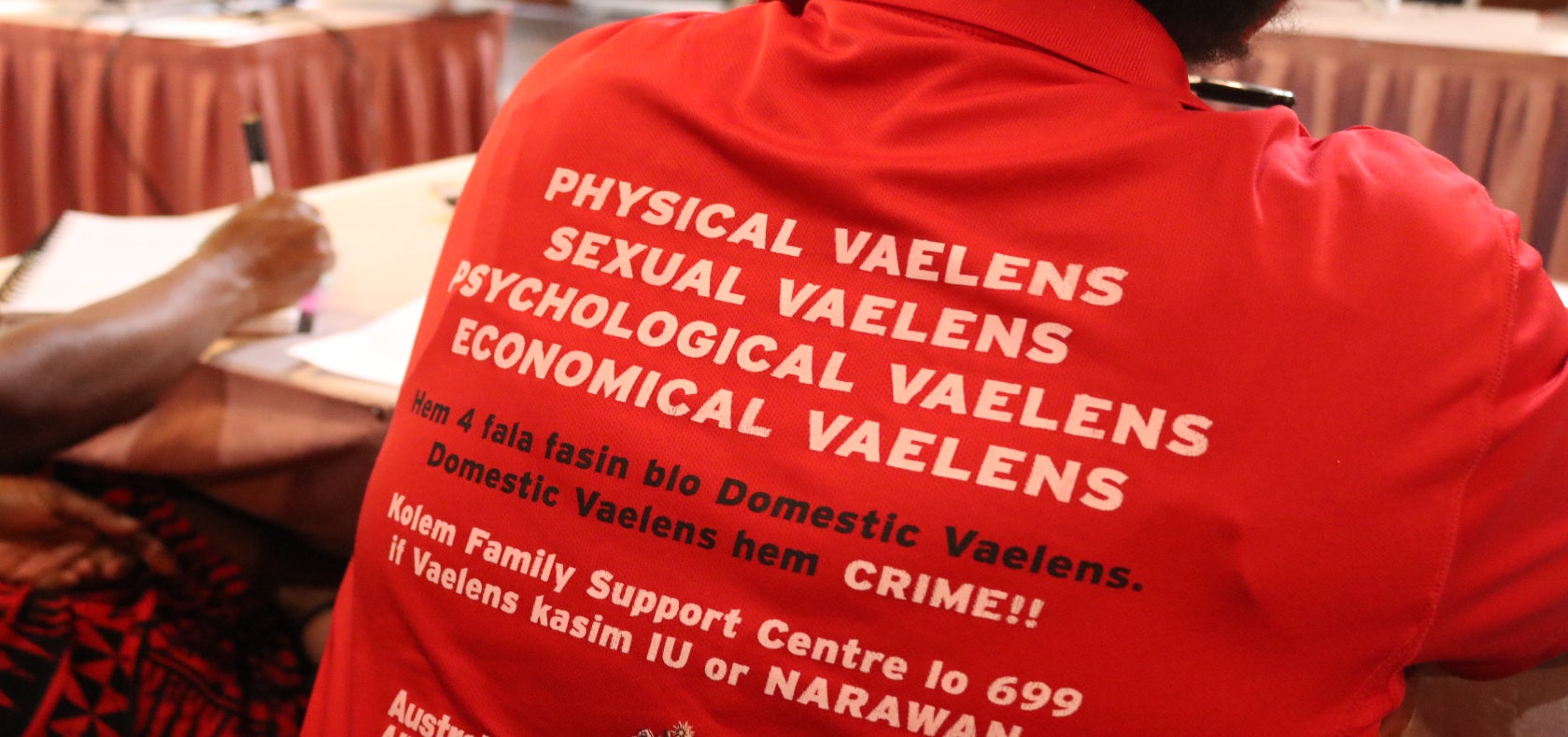Delivering rapid, coordinated services to survivors of violence in the Solomon Islands
Date:

In the Solomon Islands, access to essential services for survivors of gender-based violence (GBV) has long been a challenge. However, efforts to strengthen response systems are beginning to show results, offering hope to those affected by GBV.
A 2009 national study revealed a high prevalence of violence against women in the country, with nearly 2 in 3 ever-partnered women aged 15–49 reporting physical or sexual violence, or both, by an intimate partner. Most women suffered in silence, with only a few seeking help from public services, and when they did, it was typically after the abuse had become severe and caused serious injuries.
Alarmed by this reality, seven government and non-governmental service providers, including the police, hospitals, and crisis centers, joined forces to establish SAFENET, initially housed under the Ministry of Health and Medical Services. This national service and referral network was established to provide coordinated and essential response services for GBV survivors.
However, the initial response from SAFENET faced challenges in meeting the needs of survivors, as recalled by Nashley Vozoto, the first coordinator appointed in 2013. "Each service provider had its own approach to handling gender-based violence that didn't prioritise women's safety. Moreover, they didn’t collaborate with each other, which prevented survivors from accessing a full range of services needed to heal from violence. As a collective body, SAFENET was unable to fully meet the complex needs of survivors."
Working together to end violence
Supported by UN Women, the Ministry of Women, Youth, Children, and Family Affairs (MWYCFA), began restructuring SAFENET, to better support survivors. In 2017 they released the SAFENET Guidebook, which provides a framework for each service provider to deliver high-quality services and connect survivors to other service providers for additional support through a standardised referral system. All SAFENET members received training on transforming attitudes and norms, as well as tools to ensure a survivor-centered approach. For instance, when survivors initially reach out, service providers must follow six immediate actions that prioritise safety, confidentiality, informed consent, and referral options.
In addition, SAFENET underwent a complete governance restructuring. It shifted its management from the Ministry of Health and Medical Services to the MWYCFA - the national women’s machinery - and appointed a dedicated coordinator to facilitate training and regular meetings among SAFENET members. To enhance coordination across different sectors, an advisory board composed of agency heads was established. Since 2019, SAFENET has expanded to outer provinces in collaboration with provincial governments.

Vozoto highlights the positive changes resulting from these efforts. "In the past, it was rare and sensitive for SAFENET members to openly discuss violence against women. We didn't want to offend anyone. However, during SAFENET meetings—also supported by UN Women—there is now open dialogue on what constitutes safe practices and what doesn’t. Members address challenges and collaborate on finding solutions together. We are finally speaking the same language. The improved services have encouraged more survivors to seek help from SAFENET," said Vozoto.
Doris Puiahi, the Ending Violence Against Women Girls Coordinator at UN Women for the Pacific Partnership to End Violence Against Women and Girls (Pacific Partnership) programme in Solomon Islands, commends the progress SAFENET has made. “Over the years, we have worked closely with SAFENET to meet international standards and ensure quality services are accessible to all women and girls experiencing violence. Today, SAFENET is a trusted brand. If you are part of SAFENET, you are trusted to abide by the principles of a survivor-centered approach. This is a significant achievement in the Solomon Islands,” said Puiahi.
Mary Romo* is one of the survivors who sought help from SAFENET. Her husband’s continuous abuse during her pregnancy tragically resulted in the loss of their baby.
“I realised that if I continued to stay with him, he would eventually kill me too. I remained silent for many years, but stories of women who had received services from SAFENET encouraged me to finally seek help,” shares Romo, who sought support from Seif Ples (Safe Place).
Operated by a SAFENET member, the Royal Solomon Islands Police Force, Seif Ples is a GBV crisis and referral center that operates a helpline, and provides clinical services, temporary accommodation, and referrals for survivors of violence.
Upon her arrival, a police officer promptly issued a protection order, known as a Police Safety Notice in the Solomon Islands, valid for 21 days to ensure Romo's immediate safety. The officer accompanied her to a local hospital for treatment, and she also received GBV counselling at a crisis center. With the assistance of a lawyer, Romo initiated legal proceedings against her husband.
"I don't know what I would have done without this support. I am thankful to the government for assisting women and girls who may be going through what I experienced," Romo shares. From Honiara-based Seif Ples, Romo requested support in being transferred to her own province, where she plans to rebuild her life. "We deserve to survive. We deserve to be safe. And now, I finally feel safe. When I walk out, I will share my story with my friends, so they too feel inspired to seek help."
Increased support during the pandemic
SAFENET's coordinated efforts were put to the test during the COVID-19 pandemic. The network established an emergency sub-committee and adapted referral pathways to address emergencies. Provincial referral pathways were also created to include remote community-based organisations as partners of SAFENET, ensuring that survivors in remote areas could access necessary services even during disasters.
During the national lockdown, SAFENET members used community radios and national television to broadcast bulletins about available services, ensuring that survivors could continue to access assistance provided by SAFENET across the country. Despite the challenges of the pandemic, in 2021, SAFENET provided services to 3,165 survivors of violence, with 1,647 of them being referred to other essential services. These figures represent an increase compared to 2019, prior to the pandemic, when 1,939 survivors received services, and 901 referrals were made.
UN Women is a longstanding partner of the Government of Solomon Islands. SAFENET, led by the Ministry of Women, Youth, Children and Family Affairs and supported by key multisectoral partners, receives significant backing from UN Women through the Pacific Partnership. This programme is primarily funded by the Government of Australia, the European Union, and is jointly coordinated by UN Women and the Pacific Community (SPC), in collaboration with the Pacific Islands Forum (PIF). Now in its second phase (2023-2027), the Pacific Partnership builds on the success of the first phase (2018-2023), advancing innovative initiatives and partnerships to promote gender equality and end violence against women and girls across the region.